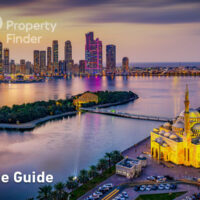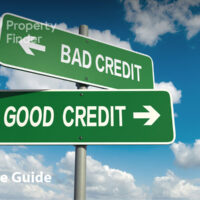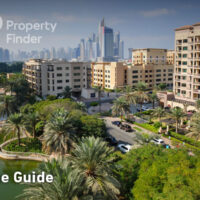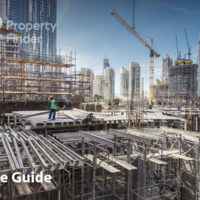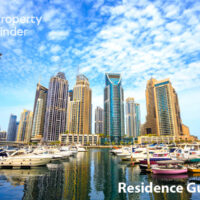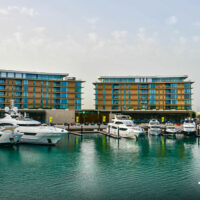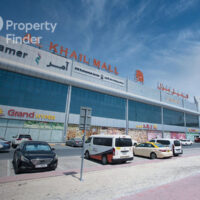2018 was a fearful time for many investors. If not fearful, it was certainly a time of significant concern. We learnt that in 2018, the world is much more complex and more intricate with ever-increasing interdependencies between nations, cultures, societies, sciences, industries and economies.

Considering globalisation, the number of factors that can affect local economies, and the industries and markets that operate within those economies have increased dramatically in both number and complexity.
In the face of such global disruption and uncertainty, there is only so much that policymakers can achieve. The major global players, once aligned in policy and viewpoint when tackling global issues have now disbanded, focusing more on satisfying national interests at the expense of the global good. This is unfortunate, and one only hopes that those with longer term and broader perspectives will eventually prevail.
Dubai, with an economy that has tourism, trade, construction and financial services as primary drivers of economic and population growth, will continue to be affected by global machinations, whether they be political, diplomatic, financial or otherwise. Local industries will be affected by global events. It is inescapable and something that we all, as diligent investors, need to understand.
Looking towards 2019
In 2019, Dubai’s real estate industry will be further shaped by events which affect population growth. The UAE’s ability to provide opportunities for business and individuals alike; such as the disposable income of its residents and visitors, the affordability of the UAE dirham, the levels of available liquidity to its local and foreign investors, its governments revenues, its relationships with other countries or its commercial infrastructure will have an effect on our industry. These are facts that professionals in the industry have to contend with. So, we need to look at the variables that will drive the industry.
Population Growth
Our first consideration is population growth. A growing population is the fuel of any property industry and it will be Dubai’s population growth that bodes well for the market in the next three years, particularly as a spike in population growth is expected as the “Expo effect” takes hold.
It may come as a surprise to some that Dubai’s population hovers around three million. This is up almost 134% since the turn of this century. This amazing growth has been
This is fantastic news for Dubai’s property industry, and the economy overall, especially when other nations are facing stagnating population growth or, in the case of countries like Japan, falling populations. Many come to Dubai as they are seeking to progress and improve their economic well-being by taking advantage of the superior opportunities that Dubai will continue to offer. This growth, is in part, courtesy of such major initiatives as the 2020 Global Expo.
Additionally, are the time-tested economic pillars of trade, finance and tourism. Certainly, opportunities are present to capitalise on this population growth and resurgence in demand for property.
Increased Disposable Income
Our second consideration is the disposable income of residents and visitors. 2018 saw property values and rents decline significantly. Put simply, these changes may effectively increase, not only the purchasing power of the
And, as our friend Warren Buffet is so fond of saying, “Price is what you pay. Value is what you get”, and value in 2019 is unlikely to be better at any other point in the future.
The UAE Dirham
Our third consideration is the affordability of the UAE dirham. There is no doubt that the fiscal policy decisions taken in the US have had an impact for many foreign buyers. Given that the UAE dirham is pegged to the US dollar, interest rate hikes in the past couple of years have placed additional strain at a time when the market is already tough.
However, the US Federal Reserve is likely to tighten it’s monetary policy marginally this year. The recent concern in world markets about the effect that an overly hawkish US monetary policy might have on the US and global economic growth is causing the Fed to exhibit a more dovish tone when talking about interest rates increases in 2019.
Falling Oil Prices
In addition, the recent fall in oil prices, while reducing the revenues of oil-producing nations, has had a positive effect in helping the Indian rupee to stabilise, essentially stopping its freefall in value. By October of 2018, the Indian rupee had fallen to
Similarly, the Chinese economy, markets and its currency, the yuan, have been in decline since the US-inspired trade issues emerged. China is an important source of foreign direct investment for the UAE and the possibility of a full-blown trade war between China and the United States could slow the rate of Chinese investment in the UAE.
However, as at the time of writing, it appeared that tensions may be easing and the beginning of productive and positive negotiations are foreseeable. Needless to say, a resolution would be significantly beneficial to world economic growth, investor confidence and renewed investor activity.
Brexit
The real remaining concern is Brexit. This continuing saga appears to be headed for an outcome which, in the short-term, will see a further weakening of the British pound, thereby making investing in Dubai a more expensive proposition for the Brits, who make up a significant portion of property investors.
UAE Banking Sector
Meanwhile, the UAE banking sector is liquid and strong, with the UAE Central Bank forecasting credit growth to the private sector to increase by 6.5% in the first nine months of 2019. In addition, Islamic banking is growing at a rate of 9% annually leading the Governor of the UAE Central Bank to state that “the banking sector is in a very good position to excel and support economic growth” and that the banking sector is not being impacted by the correction in real estate values with banks continuing to provide credit to the industry. “The property market is in a good position, more than before, and lending continues.”
Infrastructure Spending
Dubai’s spending on infrastructure continues with a total budget of AED 56.8 billion budgeted for 2019. Heavily focused on infrastructure projects for Expo 2020, the budget comes in line with Dubai Strategic Plan 2021’s targets and future commitments. The budget features
This reflects the directives of Sheikh Mohammed to raise infrastructure efficiency in Dubai for the emirate to become the preferred destination for residents, tourism, and businesses across all sectors.
VAT
And finally, notwithstanding some inflationary effect on consumer prices, the concerns that were being opined about any significant negative effect of last year’s VAT implementation do not appear to have materialised.
So, the picture is not as bleak as some may surmise. Quite the contrary. Taking a broader perspective and looking at all the major influences individually and logically, the picture suggests beckoning opportunities,
particularly when taking a medium to long-term view.
There is no doubt that the market is nervous, but I believe that 2019 will be viewed as the year of the brave investors as they take advantage of a market that has achieved almost full correction, that is offering fantastic value and that will benefit from an economy that looks primed for sustainable long-term growth. Complex, it may be, but unfathomable it is not.
________
Read more:
Supply and Demand Key Market Trends — 2018 Wrap Up
What can we expect as we look towards 2019?
________
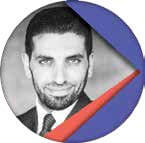
MOHANAD ALWADIYA
CEO, Harbor Real Estate
Senior Instructor & Advisor at the Dubai Real Estate Institute
How many years’ experience do you have in real estate & market speciality?
18 years in the fields of real estate investment and property management.
Why did you want to write about UAE’s economic initiatives?
Operating in a post-recession environment can be risky, especially for those looking to invest in property in the UAE. This topic depicts the current market sentiment.
In just a few words, describe the UAE real estate market in 2019.
The Dubai market is, having seen a period of falling values, rapidly approaching the bottom of its contraction phase, making 2019 a pivotal year for the industry.
This article was originally published in Property Finder Trends, Vol 5.






